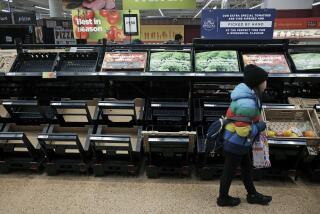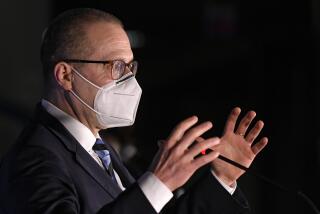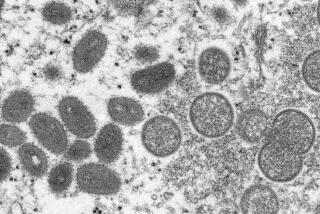<i>E. coli</i> deaths in Europe grow; link to Spanish cucumbers debunked
- Share via
LONDON — Cases of E. coli-related illness are springing up around Europe, particularly in northern Germany, causing 16 deaths so far and infecting more than 1,000 people, according to the Guardian.
The bacteria are commonly linked to raw or undercooked meat or to unwashed vegetables and fruit. Cucumbers imported into Germany from Spain had initially been blamed for this outbreak, but new evidence suggested that isn’t the case.
The deaths have been attributed to hemolytic-uremic syndrome, which can occur after infection with some especially virulent strains of E. coli. The World Health Organization has warned countries about the severity of the condition, one of the more dangerous complications of E. coli poisoning.
Meanwhile, European health and agriculture authorities are closely monitoring their raw food stocks, the Daily Mail reported. Extra care is being urged in the handling of raw salads and fruit, particularly if they are imported. A question-and-answer from the BBC offers some details.
Of the thousand or more people who have been infected in Europe, most of their illness can be linked to recent travels to Germany. Health experts are warning people to watch out for signs of illness and to consult a doctor immediately if they occur. Classic symptoms include severe abdominal cramps and diarrhea, sometimes containing blood.
Imports of Spanish fruits and vegetables have been banned in several European countries as experts try to locate the source of the bacteria. They’re attempting to determine whether the bacteria came from Spain or were picked up on the way to the German marketplace. Already, the furor has caused rancor among Spanish producers and a huge loss of income for the Spanish economy.
By Tuesday afternoon, scientists were said to be focusing on a couple of fruit and vegetable farms in Spain. Meanwhile, German doctors said they expected fatalities and the number of the infected to increase.
Related: Europeans trade blame over E. coli outbreak.
More to Read
Sign up for Essential California
The most important California stories and recommendations in your inbox every morning.
You may occasionally receive promotional content from the Los Angeles Times.













